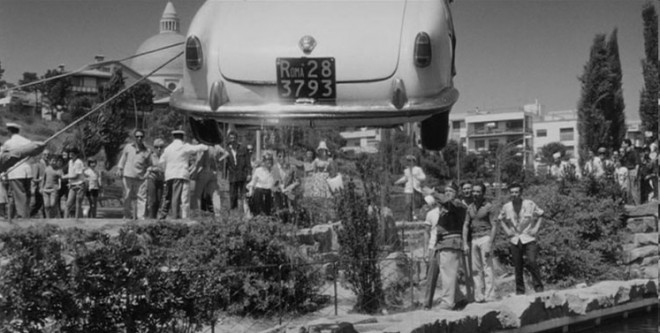By the late twentieth century, the United States and the U.S.S.R. have appropriated Europe—the Soviet Union, for instance, the Netherlands. This conceit imagines the transformation of familiar nations into states of exile. Chilean surrealist Râúl Ruiz’s own European exile was prompted by the military coup against Allende, whose cinema advisor he had been. Het Dak van de Walvis is one of his most delirious and ambitious hoax-like fictions.
A Dutch couple, anthropologists, visit the retreat of millionaire Communist Narcisso, presumably in the wilds of Patagonia. There, the woman, Eva, digs up tribal artifacts on the grounds with her bare hands and her husband painstakingly interviews Adam and Eden, two surviving members of the Yachanes Indians, whose language (concocted by Ruiz) he attempts to decipher and record. Meanwhile, five other languages are also spoken: Dutch, Spanish, French, German and English.
Linked to one in Eva’s dream, Narcisso’s remote house admits realistic interiors, although sparked by the magic of shadow-plays and mirrors, while the exterior, in long-shot, exists in the landscape of a dream. While her husband clings to his identity of scientific outsider, appropriating discoveries as his neocolonialist own, Eva chooses to remain behind when he leaves. In the course of the film her child’s gender slides from boydom into girldom; even more so than her mother, Anita fits in in her new surroundings.
This wonderful film is ill-served by critical attempts to seize upon a remark here or there for the comfort of a reductive meaning. Ruiz illuminates the distances that the familiar, outside world creates when it deludes itself into believing that it is closing these distances. Some feel that the film is esoteric; rather, it is gravely mysterious, gorgeously distilling the sadness, longings and emotional disarray of political exile.
